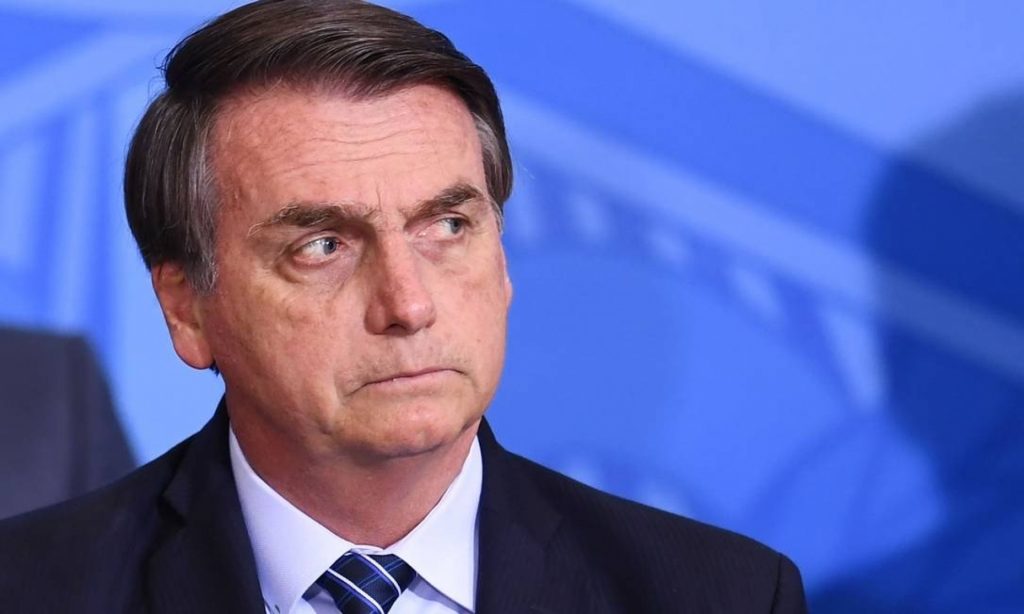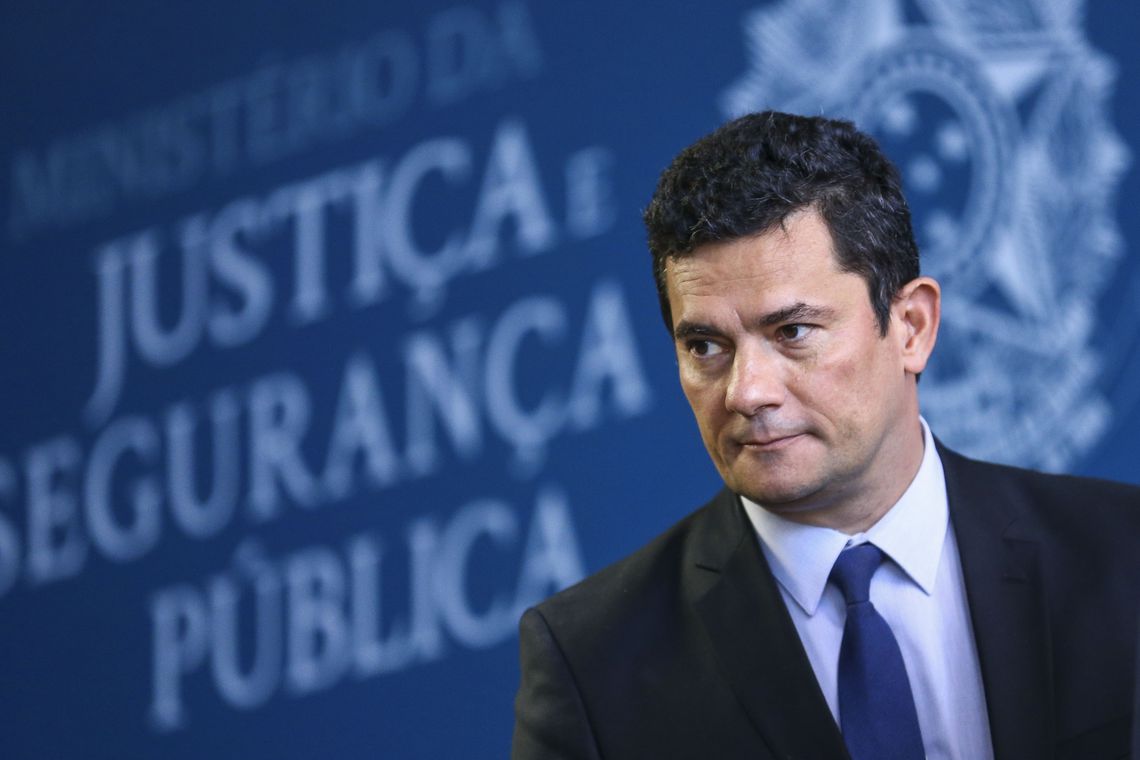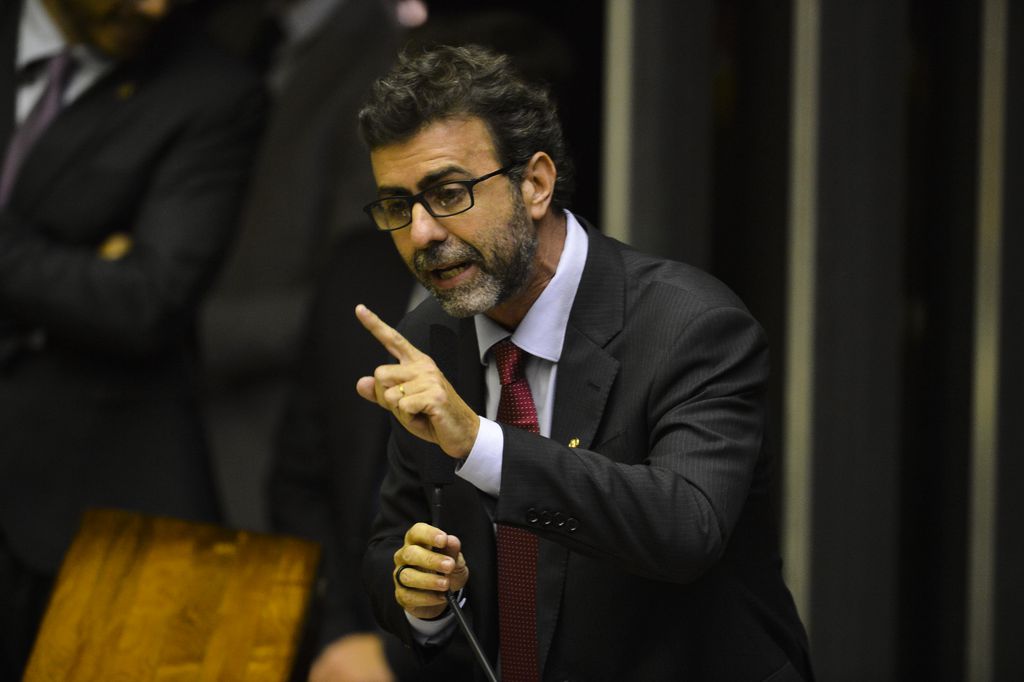RIO DE JANEIRO, BRAZIL – President Jair Bolsonaro‘s decision on December 24th to sanction the Congressional version of the anti-crime package, authored by Minister Sérgio Moro, while retaining some of the amendments proposed by legislators, has led to a series of criticisms of the government from its own base.

The stir revolved around the establishment of a “guarantees judge” – a magistrate who will monitor the investigation stage and collect evidence from a case to guarantee that the rights of those under investigation are not being infringed during the inquiry. The trial and sentencing stages will be left to another judge, according to the newly sanctioned statute.
Bolsonaro was expected to veto this point, which was included in the package through an amendment by Federal Deputy Marcelo Freixo and criticized by Moro. In addition to the political turmoil in the Bolsonarist world, the law also opened an immediate debate among experts and academics on the measure’s constitutionality and its economic viability.
The change was, in practice, a defeat for Sérgio Moro, particularly because the president barred a further 25 amendments considered sensitive, but allowed this to pass. The proposal to establish a guarantees judge comes in the wake of criticism of Moro when he headed Operation Lava Jato.
The then judge was accused of acting jointly with the prosecution, disrupting the image of the impartial judge in Brazilian law. The situation changed with the disclosure of private conversations between the magistrate and the members of the prosecutors’ task force published by The Intercept in partnership with other media outlets, such as El País.
If the rule had already applied in Lava Jato, Moro who ruled on the controversial coercive arrest of ex-president Luiz Inácio Lula da Silva, for instance, would not have dictated the sentence against the leftist in the same case.
On Wednesday, the now-Justice Minister expressed his views on Twitter in a restrained tone: “It is not the dream project, but it contains advances. I have always been against some additions introduced by the Chamber in the original text, such as the guarantees judge. Nevertheless, we are moving forward”. The president himself found the outcome of the anti-crime package “extremely positive”.
Bolsonaro made a point of emphasizing the increase in the maximum prison sentence term, from 30 to 40 years, and the end of the temporary leave for convicts guilty of a heinous crime that resulted in death. As for the guarantees judge, not a word, while even allies called him a “traitor”. It was up to Bolsonaro’s sons to come to his defense on this point.

Carlos Bolsonaro retweeted comments that would point to a “master” strategy by his father. According to the widespread views on social media, the judiciary could not afford to hire hundreds of new judges – since the current staff would be unable to accumulate functions -, which would cause this point of the anti-crime package to be overturned later through a Direct Action of Unconstitutionality (ADIN).
The President’s choosing not to veto the guarantees judge, was designed not to “upset” the executive branch with the legislative, considering a number of reforms that the Planalto will be proposing next year and that require the support of Congress to be passed.
Although going against Moro’s desire on the creation of a guarantees judge, Bolsonaro said on Thursday that Brazil will be in good hands should the former judge and current Justice Minister be a candidate for his succession in 2022.
Debate on its implementation
In a scenario of strained public accounts and a spending ceiling that should tighten the budget even further – the O Estado de S. Paulo points out that the judiciary should cut the number of interns in 2020 – this reading has its logic, all the more so given that virtually half of Brazil’s municipalities do not even have a judge.
Simone Tebet, president of the Senate Committee on Constitution and Justice, classified the establishment of the position of guarantees judge as “unconstitutional (…) or illegal, due to non-compliance with the Law of Fiscal Responsibility”. She also pointed out the already existing deficit of magistrates in several districts.
This argument of the possible unconstitutionality of the measure is also upheld by retired Federal Supreme Court Justice Carlos Ayres Britto. “To separate things as the law says is to confer on the criminal jurisdiction a structure different from that conveyed by the Constitution since there is no such shift from uniformity to jurisdictional duality [to have different attributions to the judge],” he says.
“Therefore, only the Magna Carta can regulate the matter,” he says. Britto also points out that there is the possibility of this issue being considered a bedrock clause of our major law: “In this case, even by amending the Constitution it would not be possible to have touched the issue. Therefore, the issue is already expected to be brought before the STF to impugn such passage of the new law”.
As for the cost of the amendment, which would prevent its execution, Gustavo Badaró, professor of Criminal Law at the University of São Paulo, believes that the economic impact would not be as great as it is being heralded.

“Fewer judges will be hired than what is claimed, creating an effective system in which magistrates act in pairs, with a court judge acting as a guarantor for a colleague from the second court and vice versa will be enough”. However, there would be an obstacle: “It is clear that judges will never want to have more work earning the same salary”. Badaró, who considers the measure an advance that reinforces the neutrality of the criminal procedure, also minimizes the discourse that this change is intended to curb the performance of Lava Jato.
“There was a 2009 bill that already provided for the creation of this figure, five years before the operation began,” he says. He also points out that the guarantees judge is common in several countries and international bodies, such as the Inter-American Court of Human Rights.
Despite the difficulties pointed out by the measure’s critics, there are already positive experiences in this sense in Brazil. This is the case of the Police Investigations Department (DIPO) in the capital city of São Paulo, which has judges working precisely in the granting of precautionary measures (such as wiretaps, search and seizure warrants, etc.).
“Except for homicides and milder cases, the DIPO works with a structure similar to that proposed by the anti-crime package,” explains Fábio Toffic, a criminal attorney and president of the Defense Law Institute. He also points out that with the model of virtual cases already in place in several courts in the country, in which cases are organized digitally and computerized, it also eases the proposed reorganization of the judiciary.
“A judge in Campinas can be the guarantees judge of a case that runs in Jundiaí without any difficulty, because the magistrate hardly needs to keep contact with the parties during the investigation stage”.
As expected, the measure was not received with praise by magistrates. The president of the Federal Judges Association, Fernando Mendes, stressed that he has always been opposed to the creation of the figure of the guarantees judge. However, he said that once regulated, this new figure needs to serve the entire judiciary and not be limited to cases like Lava Jato, which involve white-collar crimes.
“If the establishment is truly important, it must be applied to everyone, whether in Lava Jato cases or ordinary criminal cases, which are thousands of cases being processed in the interior of the country and which require the same guarantees,” he said. He also pointed to the structural imbroglio that the measure entails: “Federal Justice will have to redesign its structure and redefine criminal jurisdiction to enable the implementation of the judge of guarantees”.
The debate should be lengthy in the coming weeks and the National Council of Justice (CNJ) will have to guide the judiciary on its implementation, which, according to the law, must start on January 23rd. On Thursday, the president of the CNJ and the Supreme Court (STF), Antonio Dias Toffoli, ordered the setting-up of a working group to assess the implementation of the system with guarantees judge. The court has 15 days to submit its opinion.
Source: El País

